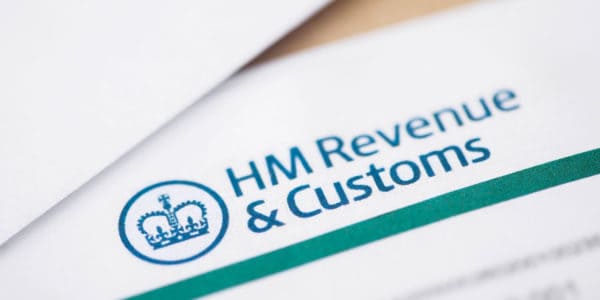A general meeting is a formal meeting of all members (i.e., shareholders or guarantors) of a limited company who are entitled to attend. The purpose of this type of meeting is to allow members to convene face-to-face to discuss the performance of the business, consider future activities and strategies, and make decisions on significant affairs that are beyond the remit of the directors’ powers and duties.
Under the Companies Act 2006, general meetings (incl. Annual General Meetings) are not a statutory requirement for private limited companies. You can, however, choose to hold general meetings whenever the need arises. Some companies include provisions in their articles requiring them to hold regular general meetings and/or AGMs.
A successful business relies on effective communication, so these meetings can be of great benefit to companies.
Key takeaways
- General meetings enable members to collectively discuss crucial business matters and make binding decisions beyond directors’ authority.
- Companies must provide at least 14 days’ notice for general meetings, ensuring members have time to prepare for discussions.
- Maintaining accurate minutes of general meetings is essential for compliance and future reference, as they must be kept for ten years.
Procedure for calling and holding general meetings
Part 13 of the Companies Act 2006 sets out the statutory framework for calling and holding general meetings. These rules and procedures are supplemented in the articles of association and, in some companies, a shareholders’ agreement, so it’s important to refer to all relevant sources to determine the specific rules that apply to a particular company.
General meetings can be called by the board of directors or by members. If directors want to arrange a general meeting, they must provide members with at least 14 days’ notice (or 21 days for PLCs), unless a longer period is required under the articles. If members wish to hold a general meeting, they can make a request to the directors.
Directors are required to call a general meeting if they receive a request from:
- shareholders representing at least 5% of the company’s paid-up share capital and who have the right to vote at general meetings, or
- guarantors (i.e. the members of a limited by guarantee company) who represent at least 5% of the total voting rights of all members
Upon receiving such a valid request, the directors must call a general meeting within 21 days. The meeting should be scheduled for a date no later than 28 days after the date of the notice calling the meeting. In some circumstances, meetings can be held at short notice if the requisite majority of members provide consent.
Notice of a general meeting must be sent to all members entitled to attend general meetings, in addition to the company directors and auditors. It can be delivered by post or by electronic means. The notice must state the date, time, and place of the meeting, an outline of the agenda or the general nature of the business that will be dealt with, details of any proposed company resolutions, and any additional information relevant to the meeting.
If a special resolution is to be proposed at a general meeting, the notice must clearly state this and include the full text of the special resolution.
Decision-making at general meetings
Company members make collective decisions at general meetings by ‘passing resolutions’. Details of any motion (proposed resolution) must be provided to every eligible member prior to the meeting, allowing sufficient time for consideration before voting on the motion. At the meeting, members may discuss the motion, raising any queries or concerns they may have, before casting their votes.
To pass a company resolution at a general meeting, members are required to cast their votes for or against the motion. This is done by a show of hands or by a poll. If the requisite number of votes is achieved in favour of the motion, the decision becomes legally binding. The number of votes required to pass a resolution will depend on whether it is an ordinary resolution (which requires a 50% majority) or a special resolution (which requires a 75% majority).
If any members are unable to attend a general meeting, it is possible to appoint a proxy who will represent the member’s interests and cast votes on their behalf. Notice of any proxies must be provided to the company prior to the general meeting.
Can members make decisions without holding a general meeting?
It is possible, and fairly standard, for company members to make decisions without holding a general meeting. To do so, a written resolution describing the proposal is circulated to all eligible members, either by post or electronic means.
Members cast their votes by whichever method is outlined in the written resolution. This will normally involve signing and returning the document, responding by email, or completing a form on a website.
What shareholder decisions are made at a general meeting?
General meetings are normally required when issues arise concerning exceptional company issues such as share capital, director appointments, the company’s constitution, and significant financial arrangements. Typically, the types of issues and decisions that are dealt with at general meetings include:
- the appointment and removal of company directors
- making changes to the directors’ powers and duties
- approving directors’ contracts and remuneration
- altering the articles of association
- creating a shareholders’ agreement, or making changes to an existing one
- altering the company’s objects
- changing the name of the company
- allotting (issuing) new shares
- creating new classes of shares
- reducing the number of shares
- transferring shares
- changing the currency of shares
- matters relating to the death of a director or shareholder
- winding up the company
- litigation
- approving significant loans
- evaluating the financial position, performance, and management of the company
- entering into significant contracts
- discussing and/or approving annual accounts
- the appointment of external auditors
- mergers and acquisitions
Some companies may grant additional powers to their directors allowing them to make decisions on some of these matters. To do so, the articles of association and/or shareholders’ agreement must be updated accordingly.
Keeping minutes of general meetings
To comply with Section 355 of the Companies Act 2006, limited companies must keep minutes of all general meetings and copies of all ordinary resolutions or special resolutions of members passed at a general meeting, even if the company has only one member.
Typically, minutes of general meetings should include the following information:
- Company name and registered office address
- Date, time, and place of general meeting
- Names of everyone in attendance
- Details of any proxies and who they represent
- Names of absentees
- Proposed resolution(s)
- Result of resolution(s)
- List of members for and against resolution(s)
- Objections or queries raised
- Any other business discussed
- Closing remarks
These records must be kept at the company’s inspection location for a period of at least 10 years from the date of the meeting/resolution. Written resolutions of members should also be kept for the same period.
What’s the difference between a general meeting and a board meeting?
A general meeting is a meeting of a company’s shareholders or guarantors. A board meeting, on the other hand, is a formal meeting of a company’s directors that provides an opportunity for directors to evaluate and discuss the company’s performance and make collective decisions within the remit of their powers.
In many cases, a company’s members and directors are the same people. However, there are different rules and procedures that must still be followed to maintain a clear distinction between these two roles.
For more information on board meetings and the decision-making powers of company directors, read our blog about the difference between board resolutions and board minutes.














Join The Discussion
Comments (26)
I am the Secretary of a Ltd Club. We have 103 members, 8 country, 7 Limited.
I am shortly to call an EGM for a proposition to be put to members which, if carried, will require the Articles of Association and the Club Rules to be changed. The Articles of Association state that a show of hands is required for a Special Resolution to be passed, which infers that the member (shareholder) must be present to vote.
The Articles of Association also state in the first paragraph – ‘ When any provision of the Act is referred to the reference is to such provision as modified by any statute for the time being in force.
Modified statutes state that votes can be taken electronically, but this is not shown in the Articles. There is no provision for a proxy vote.
My perception is that each member is entitled to one vote, and must be given opportunity whether they attend the Extraordinary General meeting or not.
Please can you advise if the members have to be present to vote, or if a poll is demanded, can the EGM be adjourned to poll ALL members or only those present.
I thank you in advance for your time.
Thank you for the question.
To answer the question we would need to see the articles of association.
Because of this, in this instance we recommend seeking legal advice.
Sorry we couldn’t be of more use.
Kind regards,
The QCF Team
I’d like to ask about the statement supporting an EGM request. If the statement is not factual can the current directors refuse to circulate?
Thanks for the question.
Sections 314 of the Companies Act 2006 provide the power to the members of a company to require that a statement (of up to 1,000 words) be circulated on anything relating to the resolution(s) being proposed or any other business that is being dealt with.
To be able to request this, the members must represent at least 5% of the total voting rights in the company or by being 100 members who have the right to vote (with at least an average paid up sum of £100 per member.
It is the duty of the company to circulate this among the members of the company (per section 315).
We aren’t aware of a reason that the directors might be able to prevent circulation based on its content. Further, it should be noted that it is the duty of the officers to circulate this statement and that failure to do so is an offence. Anything further, I’m afraid you may need to seek legal advice.
Kind regards,
The QCF Team
Are members club committee meetings held in the same regards as these meetings? I’m in a dispute with a committee and they are refusing to hand over the minutes of a meeting I attended, even though I have asked under data protection, Roberts rules, member of club and a Subject Access Request, saying they don’t have them yet they used them in their AGM.
Thanks for the question.
Usually private members clubs are “unincorporated associations”.
This means that they do not have a separate legal entity and are not registered at Companies House.
As a result, it is not governed by the Companies Act 2006 and the rules laid therein.
I’m afraid we aren’t able to give specific advice on unincorporated associations.
However, although not compulsory, many unincorporated associations will have their own constitution. This will usually outline the rules dictating meetings and you will want to consult this in the first instance.
I am sorry we could not be of more assistance.
Kind regards,
The QCF Team
Hi, I am trying to establish if a limited company (a golf club where all members have 1 share) can call and carry out an EGM to pass various special resolutions without being able to speak?
The occasion was this year when we had a video link, but could not ask questions as it was viewing only.
Is this a legal shareholders EGM?
All that happened was we were given the results by % of each of the resolution pole
Many thanks for your consideration of my question.
Hi Keith, thanks for the question.
Whilst we cannot provide advice on specific scenarios, the general rule is that, for a virtual meeting to take place, the shareholders in attendance should be able to hear the meeting as well as to be able to speak. So if the company’s articles permit the arrangements for a virtual general meeting, then the meeting needs to be conducted in this manner.
We hope that helps.
Regards,
The QCF Team
I am a member/shareholder of a Golf Club. We have an AGM in January. Some shareholders have proposed Rule changes. The Chairman has given reasons not to change these in the letter to Members invitation to attend/vote. Is this within the rules?
One proposal is below.
To amend the following sentences from :-
“To be elected to the Board for a three-year term, each candidate should receive support from more
than 50% of the votes cast.”
To amend the following sentences to :-
“The Candidates(s) with the most votes will be elected to the Board for a three-year term.”
Reason: This is in line with the first past the post principle without negative voting which had been prior
to 2014 the positive mainstay for receiving sufficient Candidates to fulfil the full complement numbers
for the Board.
Chairmans Response.
Please note: This resolution, if passed, will remove the current opportunity for the membership to
choose whether or not they wish to support the candidate(s) who have been nominated to represent the
membership as Directors. The voting will adopt a first past the post result regardless of however many
(or few) votes are cast in their favour. It will also facilitate automatic election to the Board in the event
that there are fewer candidates than vacant Director
Thank you for your kind enquiry, Keith.
Companies are required to provide notice of a general meeting. The general rules dictating notices require the inclusion of the time, date, and address of the meeting, the nature of the business that will be dealt with, the text of resolutions and a statement of the shareholders’ rights to appoint a proxy. Importantly, as part of this there should provide an explanation of the resolutions that are being proposed. Additional explanatory comments from the company would therefore usually be expected.
Unfortunately, we cannot comment on the nature of the resolution or the comments that the chairman has made. Nonetheless, we hope the above assists you.
Regards,
The QCF Team
Thank you for this information
Could you please confirm if there is a legal requirement to release minutes from an AGM within a specified time? I understand at the next AGM the minutes will be confirmed and agreed but I am being refused a copy of minutes for an AGM I could not attend until the next meeting in 12 moths time. Thanks you for any advice you can give
Thank you for your kind enquiry, Tony.
We are not aware of any explicit time scale in which minutes from an AGM should be made available. There doesn’t appear to be anything in the Companies Act 2006 which dictates a maximum time limit.
In the first instance, you should check the company’s articles of association, should they detail any requirements here.
It is important to consider the general rules regarding general meeting minutes. The Companies Act requires that the minutes should be made available at the company’s registered office (or Single Alternative Inspection Location, if the company has one). Access for shareholders should be provided free of charge to shareholders. Failure to carry this out is an offence which is committed by every officer of the company.
We trust this information is of use to you.
Regards,
The QCF Team
I wonder if you could help me with my case. We are a freehold limited company with 53 shareholders, board of 5 directors and a managing agency. Shareholders would like to remove 4 of 5 directors by serving special notice under section 168. The problem is that a date of general meeting hasn’t been announced. My question is: are the directors obligated to call for a general meeting after receiving the notice? Do the directors need to satisfy the period of at least 28 clear days when setting up the date of the meeting?
Thank you for your kind enquiry, Agnieszka.
In relation to your first question, the Companies Act 2006 gives the power to members to require the directors to call a meeting. The meeting must be called within 21 days from the point where the request was put in. If this does not occur, then the members who requested the meeting may call the general meeting themselves.
With regards to your second question, as mentioned, section 168 provides a means through which a director can be removed via an ordinary resolution of the members. It requires special notice to be provided of the resolution to remove said director(s). Special notice is required to be at least 28 days. In general terms, if the 28 days is not achieved, then the resolution to remove a director will not be effective.
Due to the nature of a director removal, it is very important that the correct procedures are followed. We would strongly recommend seeking legal advice on this matter, if you have not already.
We trust this information is of use to you. Please do not hesitate to post a follow up comment should you require further assistance.
Regards,
The QCF Team
We are a group of 12 residents who have a ltd company established since 2000 i have been the director since 2017 alongside a retiree neighbour who acts as the secretary, we run this on a voluntary basis, apart from a few disputes at the AGMs between neigbour’s over the years, all has run well and peacefully. We now have a shareholder, non resident, who has let his property for the past 5yrs with troublesome tennants at times that fall to us residents to skilfully manage, his wife attends the AGM (who i now know is not a shareholder and i have never been notified verbally or other means has been an authorised proxy) at the AGM, on her return from our recent AGM she reported back to her husband a dispute, resulting from her decision to bring in a (private gardener – in reality elderly man with a chain saw, despite the community having their own gardener) who hacked the neigbour’s wisteria and ivy to the roots in the neigbours private garden grown within a community area – resulting in a very emotive heated discussion at AGM .subsequently we had a barrage of aggressive, threatening emails from the husband all focusing on company legality etc stating the meeting was closeted despite him having been invited, he said he was away on holiday i offered to try a zoom but we had no signal at our village hall whete we have held our AGM’s since 2000 and his wife turned up anyway, after the secretary messaged from her phone to say we had no wifi signal,
he is now demanding an EGM seconded by one other neigbour possibly two, my ‘secretary’ neigbour was so stressed by the whole chain of aggressive threatening emails, and two other men jumping in on the ‘bullish’ legal speak, email circuit, she is in hospital with a heart attack 3 days after AGM the consultant says her stress levels were extremely high and very likely caused the heart attack, we were waiting for the mins from her but obviously her health comes first.
Ps My partner emailed privately this was before the retiree secretary had her heart attack, to ask him to put things in perspective just a group of 12 people discussing how to cut the grass pay a few bills mend a few fences etc no need for all this etc,
to which the reply to all shareholders was “as you are neither shareholder nor position holder ‘we’ do not recognise a position for you within the management company therefore ‘we’ attach no legitimacy to your comments
i have kindly asked they leave recent matters until we know the way forward please advise
Thank you for your kind question, Kate.
Members representing at least 5% of the paid up capital that carries the right to vote can request the directors hold a general meeting. On the assumption that this is a property management company, and that each resident holds a single shares (so in your scenario – 12 shares in total), a single shareholder who meets the condition listed above will usually be able to make this demand.
The request itself must state the nature of the business to be dealt with at the meeting, and it can also include the text of a resolution that they might put to the meeting.
Once received, the directors must then call the meeting within 21 calendar days, and it must not be held more than 28 days after the date of calling the meeting. Failure to follow this procedure will allow the members to call the meeting themselves.
I trust this information is of use to you. Should you require further information, please do not hesitate to leave a comment.
Kind regards,
The QCF Team
I’m wondering if the Board Directors decisions are binding, and under what circumstances (if any) can board decisions be challenged/revoked by the successive board of directors.
We are a small company consisting 15 members (all house owner-occupiers within a small village).
At a recent board meeting (august 2021), a director challenged a board decision that was unanimously agreed (and formally minuted) nearly 14 years ago by the then board of directors. Can the current board of directors revoke a previous board decision? Surely this will set precedence and undermine the authority (and credibility) of the board. How would you advice the current directors please? Thanks.
Thank you for your kind enquiry, Becky.
A new board of directors cannot ‘revoke’ the decision made by a previous board of directors – i.e. make the previous decision null and void as if it had never taken place. They can, however, make a decision which reverses the original decision at the point when the new board of directors makes the decision. For instance, if Company X LTD made a change 14 years ago via a Board Resolution, and the new board of directors wanted to make a new change which would, in effect, put the company back in the position it was in prior to the change, they would be able to do this should they gain sufficient support from the board; however, the 14 years of history with the change that took place would still exist, and the decision 14 years ago would not have been declared null and void.
With regards to one director out of 15 challenging a decision, this person would presumably have 6.6% of the voting rights given your scenario, which would give them the power to call a meeting, but would not give them decision making power on their own. Therefore, in reality, they do not have the power to make any decisions on their own, apart from being able to trigger a meeting to discuss matters.
I trust this information is of use to you.
Regards,
The QCF Team
We are 24 members/shareholders of a management company who are parties to the leases of their flats. The 3 parties are the freeholders , the management company, the flatowners. There is one Director of the management company who is not an owner but none of the flatowners are directors. The director was originally appointed by the freeholder when the flats were built and they appointed their own managing agents (which is owned by the same director) to manage the block. We as shareholders/members/owners now wish to appoint two directors to the board of our management company and then remove the existing director due to incompetance, poor management, excessive charges etc,
We have asked him to resign and to appoint two of us as directors but he completely ignores us! I am aware we can call a members meeting to ask him to call a shareholders general meeting to submit an ordinary resolution to appoint new directors and remove existing director, however what do we do as we can get no response from him.
What is the best solution to remove him and appoint 2 new directors from the flat-owners/members?
Many Thanks
Thank you for your kind enquiry, John.
In general terms, what you have described would be the ordinary course for dealing with your scenario. That is, the appointment of your desired director(s) by a resolution of the members. Upon completion, the standard AP01 forms should be sent to Companies House. You can then look at removing the existing director under section 168 of the Companies Act 2006. Removing a director is quite a serious affair and great care needs to be taken to ensure the required provisions are followed through exactly, and we would strongly suggest you seek legal advice on this matter.
We trust this information is of use to you.
Regards,
The QCF Team
Very good article. I am seeking some support on the following case: limited company with two shareholders, I am trying to close the company, however, the other shareholder is not engaging, not returning my calls or email. I am thinking to call a general meeting, expecting for him not turn up and make a decision of donating my shares to the company, and therefore I am put of the company. Is this possible that myself with the company account as a witness make this desion?
Thank you for your kind enquiry, Aaron.
In general terms, a decision to dissolve the company requires a majority of directors to agree to close the company. If you are seeking to undertake a voluntary liquidation, this also requires a majority (this time from the shareholders) of the shareholders to agree by passing an ordinary resolution. Whichever method you choose, a majority of the directors or shareholders will need to consent.
With regards to specifically ‘donating’ the shares to the company – it sounds like you might be referring to a buy back, which itself tends to be subject to some stringent regulations, and here too a resolution of the buy back will need to be passed by ordinary resolution of the shareholders (in addition to the standard buy back requirements). Any meetings that are held should be undertaken in accordance with the company’s articles of association. If none of the above options are viable to you, we would suggest you seek legal advice from a solicitor.
I trust this information is of use to you.
Regards,
Nicholas
But should the minutes of general meetings be available to all residents ie distributed to them, irrespective of attendance at the meeting? Also our directors are refusing to circulate a copy recording of a recent virtual general meeting after the residents asked for this to be their preferred choice ie instead of minutes?
Thank you for your kind enquiry, Michael.
Under section 355 of the Companies Act 2006, copies of minutes general meetings must be kept, and they must be kept at the company’s registered office or SAIL address (if applicable). These records must be made available to any member of the company. Lack of attendance at a general meeting does not prevent the records of the decisions taken being accessed, as this is the member’s right to do so.
We would recommend you consult with your company’s articles of association for any specific provisions which may exist in relation to this. Regarding a copy of the general meeting recording, you should again consult with your company’s articles of association for any specific provisions relating to the means of minuting a general meeting. Generally speaking, however, minutes are required in the form prescribed by section 355 of the Companies Act 2006.
I trust this information is of use to you.
Regards,
Nicholas
That’s very helpful! Thanks
Thank you for your kind comment, Mathias.
Regards,
Nicholas